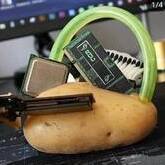Is it possible to add drives to a JBOD NAS without formatting?
-
Featured Topics
-
Topics
-
smi305 ·
Posted in New Builds and Planning0 -
Medjool ·
Posted in Troubleshooting0 -
0
-
2
-
Captain LeFwee ·
Posted in Networking2 -
Krowzz7 ·
Posted in Servers, NAS, and Home Lab5 -
Juanni ·
Posted in New Builds and Planning5 -
rcarlos243 ·
Posted in Storage Devices2 -
1
-
Zac_The_Dude ·
Posted in Phones and Tablets8
-
-
play_circle_filled

Latest From Tech Quickie:
Ethernet Is Named After Something Really Dumb (and other tech stories)

.png.255947720031a641abdac78e663b681c.png)













Create an account or sign in to comment
You need to be a member in order to leave a comment
Create an account
Sign up for a new account in our community. It's easy!
Register a new accountSign in
Already have an account? Sign in here.
Sign In Now